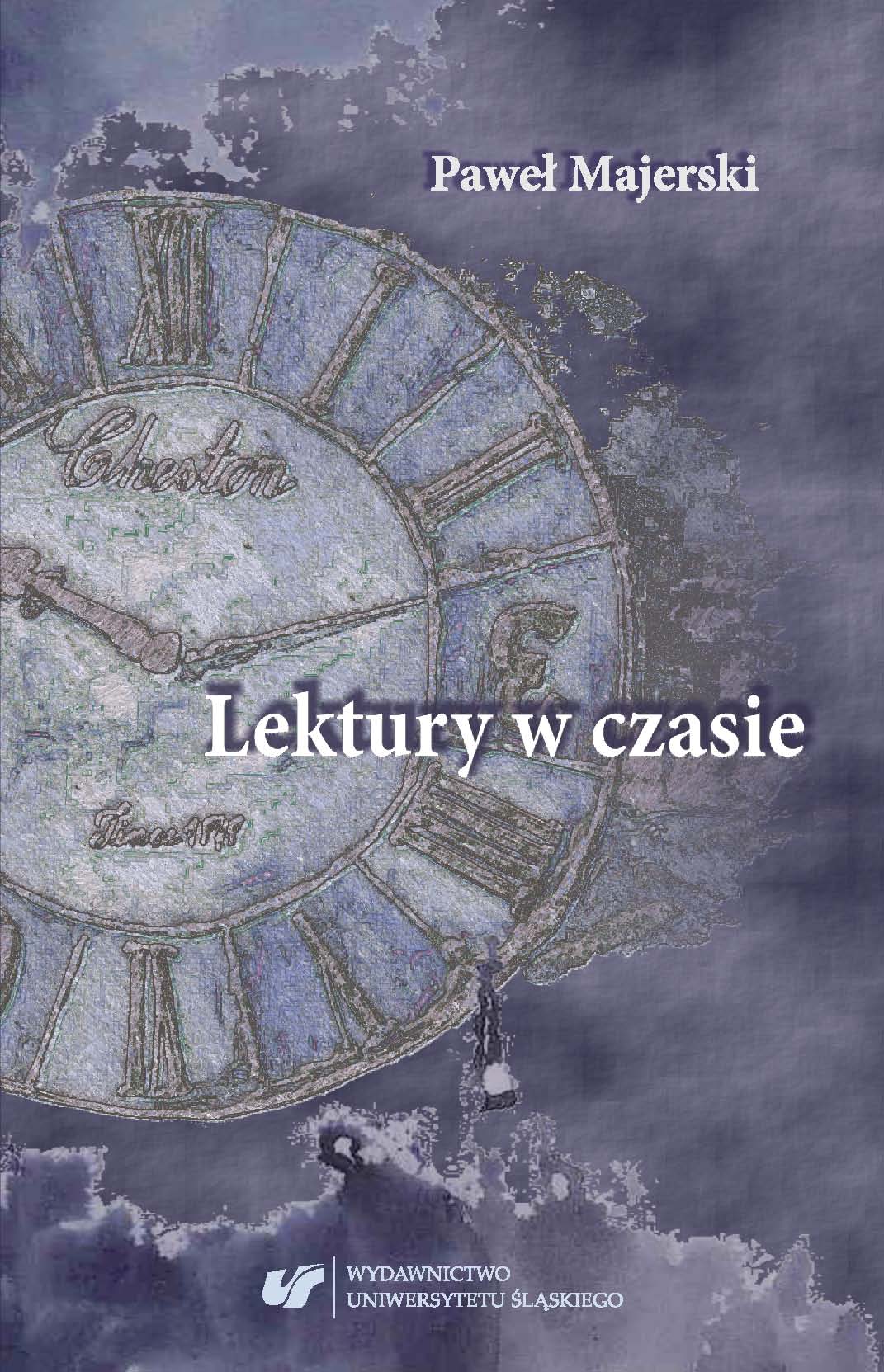Lektury w czasie
Readings in Time
Author(s): Paweł Majerski
Subject(s): Language and Literature Studies, Applied Linguistics, Studies of Literature
Published by: Wydawnictwo Uniwersytetu Śląskiego
Summary/Abstract: The author of the book is interested in the ways and crossroads of contemporary poetry, the place where writers meet, and so do critics who read poems and prose committed to paper by others with greater or lesser satisfaction, with revelation or jealousy of their imagination. When new books – testimonies of the author’s readiness to present, to meet the “other,” to be present – are published, it is the literary critics who play their part, who fulfil their mission consistently and systematically or who reach for another book without any sense of mission or obligation, “extemporaneously.” A large part of Readings in Time concerns texts devoted to critical works and – following various methodological approaches today – to historical and literary ones. The texts selected for publication were published between 1993 and 2017, immediately after the publication of the books. It was important to approach them from the required reading perspective, as the material for later systematization. Reviews and critical commentaries were published in “Nowe Książki,” “Śląsk,” “FA-art,” “Twórczość,” “Kwartalnik Artystyczny,” “Opcja,” “Autograf,” “Akant,” and “Kursywa.” The author writes with conviction: here are the “writers” and “me” at the time, here am “I” and the “writers” right now.Th e section devoted to poetry opens with a commentary on an anthology juxtaposing poems by Young Poland’s poetesses, while the section devoted to criticism – with a text on cultural (im)maturity, which discusses a book by Ewa Paczoska, a researcher reviving positivist dilemmas, “images of the past,” most broadly speaking – the epoch-making testimonies of identity. The first part of the book closes with a review of a volume by Primož Čučnik, a poet, an observer of the constant “becoming of things,” and the second part with a review of a thematic (the issue of time) monograph by Aleksandra Zasępa on poems by Krystyna Miłobędzka, whose poetry is “here and now,” in which “the presentation of the present time, focused on active living in the present moment” prevails. The afore-indicated textual frames comprise reviews of books by reflexive poets, existentialists, “metapoetic” authors, passive and active participants of our everyday life. The poetic part features commentaries on the anthology of Coś własnego (Something Owned) and a volume related to Orientacja Po-etycka Hybrydy (a group of poets calling themselves “Hybrids”) by Andrzej K. Waśkiewicz (the author composed a lyrical treatise on the presence within the space of the Paradox of Great History, he ran the “calculus of loneliness”). The poets of “Hybrids” asked about the status of our presence, about the durability and appearances of certainty; they continued to count on the effectiveness of “cognitive verification.” Among those presented in the book, one can find: Krzysztof Karasek, Janusz Szuber, Kazimierz Hoffman, Piotr Matywiecki, Piotr Sommer, Aleksandra Olędzka-Frybesowa, Anna Frajlich, Małgorzata Baranowska. The sets of commentaries contain “subchapters” titled Siedem lektur (Seven Readings) and Wiersze ze Śląska (Poems from Silesia). The first one contains, inter alia, reviews of volumes by Krzysztof Lisowski, Józef Fert and Piotr Cielesz, in which we can hear eschatological tones and discern lyrical revisions to the theme of memory. The second set of commentaries opens with a geographical key: in the “Silesian” fragment of the book – with a view to the most ordinary and seemingly “festive” events, intensified emotions, limits of certainty and doubt – poems by Jola Trela, Ryszard Chłopek, Robert Rybicki, Adam Pluszka, Marian Kisiel, Barbara Gruszka-Zych, and Andrzej Szuba are discussed. The author of the book writes about time, memory, contemplation, impressions, and intellectual settlements. The critics and researchers of literature, who are introduced in the second part of Readings in Time through records from the interwar and post-war periods, made their way through the difficult moments of history (here, inter alia, one can find sketches about the publications concerning Zofia Nałkowska, the Paris of experimental poets called Skamandrites, Maria Pawlikowska-Jasnorzewska, Aleksander Wat, the avant-garde, Stanisław Lem, Zbigniew Herbert, Janusz Szuber, about editions of Władysław Broniewski’s Pamiętnik (Diary) and Publicystyka (Journalistic Pieces) divulging the “private” and “official” faces of their author). here are also notes on literary criticism books by Jan Tomkowski, Marian Kisiel, Karol Maliszewski, and Dariusz Nowacki. Readings in Time does not establish a canon – either private or, even more so, “universal,” with the conviction that a record of norms and standards is necessary, although the value and durability of opinions is also at stake here. These are simply testimonies of reading, reports, evidence of scrutinizing texts. In the scientific works and popular science source base, the author appreciates searching for (discovering) contexts, preparing subsequent literary panoramas of the modern day.
Series: Studia literackie
- E-ISBN-13: 978-83-226-3514-8
- Print-ISBN-13: 978-83-226-3513-1
- Page Count: 316
- Publication Year: 2018
- Language: Polish
- eBook-PDF
- Table of Content
- Introduction

